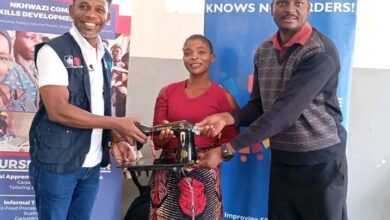National
Insufficient knowledge on sexual and reproductive health fuels unplanned pregnancies and stis in Kasungu

By Jones Gadama
The Kasungu District Health Office has expressed concern over the high rates of unplanned pregnancies and sexually transmitted infections (STIs) among youths in the district.
According to Flora Namathanga, Deputy Youth Friendly Health Services Coordinator, insufficient knowledge on Sexual and Reproductive Health (SRH) is a major contributor to these challenges.

Namathanga emphasized the need for stakeholders to collaborate in addressing the issue.
“We need to work together to ensure that our youths have access to accurate and comprehensive information on SRH,” she said.
She added,”This will enable them to make informed decisions about their health and well-being.”
The call for collaboration comes at a time when many youths in Kasungu are struggling with SRH issues.
Unplanned pregnancies and STIs are prevalent, and many young people lack the knowledge and skills to protect themselves.
Namathanga attributed this to inadequate SRH information and education among youths.
However, there are efforts underway to address the challenge. Umunthu FM’s Field Officer, Collings Kalivute, revealed that they are implementing a project to increase knowledge among youths on SRH and Rights information. The project targets both adolescent girls and boys in parts of the district.
Kalivute explained that the project aims to provide accurate and comprehensive SRH information to youths, enabling them to make informed decisions about their health. “We believe that by providing youths with the right information, we can empower them to take control of their health and well-being,” he said.
The project is a welcome development in Kasungu, where many youths lack access to SRH information.
By providing comprehensive SRH education, the project can help reduce unplanned pregnancies and STIs among youths.
SRH is a critical aspect of health that encompasses a wide range of issues, including family planning, maternal health, and STI prevention.
In Kasungu, many youths are not well-informed about these issues, which can lead to unintended consequences.
The Kasungu District Health Office’s call for collaboration highlights the need for a multi-sectoral approach to addressing SRH challenges.
By working together, stakeholders can ensure that youths have access to the information and services they need to protect their health.
The project’s focus on adolescent girls and boys is also crucial. Adolescence is a critical stage of development, and it is essential that young people have access to accurate and comprehensive SRH information during this period.
By empowering youths with SRH knowledge, the project can help them make informed decisions about their health and well-being.
This can have long-term benefits, including reduced rates of unplanned pregnancies and STIs.
The project’s implementation in parts of Kasungu district is a step in the right direction.
However, more needs to be done to address the SRH challenges facing youths in the district.
The Kasungu District Health Office’s call for collaboration should be heeded, and stakeholders should work together to ensure that youths have access to the information and services they need.
The insufficient knowledge on SRH among youths in Kasungu is a challenge that needs to be addressed.
The Kasungu District Health Office’s call for collaboration and the implementation of the SRH project by Umunthu FM are steps in the right direction.
By working together, stakeholders can ensure that youths in Kasungu have access to the information and services they need to protect their health and well-being.






